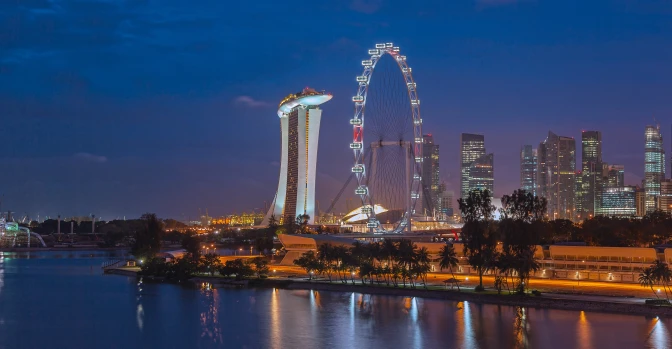How to Be Financially Independent in Singapore
Singapore is commonly known for its high cost of living. Therefore, crucial steps include financial planning for achieving financial independence.
Financial independence pertains to a condition in which an individual possesses adequate personal wealth or passive income to meet all living expenses without relying on active employment. It signifies the capacity to sustain a preferred lifestyle without working.
This objective can be accomplished through diverse approaches, such as accumulating wealth through investments, establishing passive income sources, and minimising expenses. Attaining financial independence demands discipline, patience, and a long-term perspective.
Numerous people desire financial independence, including those residing in thriving, challenging locations like Singapore. Achieving financial independence signifies financial stability and security.

1. Embrace the FIRE mindset
Achieve financial independence by adopting the Financial Independence Retire Early (FIRE) mindset, even if you are not necessarily aiming to “retire early”. The advocated approach is to manage your money responsibly and live within your means. To achieve long-term goals, prioritise saving and investing while reducing unnecessary expenses. Regardless of your involvement in the FIRE movement, follow these principles to help attain financial independence.

2. Keep your expenses in check
It is necessary to control expenses to achieve financial independence, despite the pressures of living in Singapore being expensive. Cutting down on unnecessary expenses requires being mindful of your spending habits. Consider living in a ‘cheaper’ area of Singapore, using public transport over driving, and limiting your discretionary spending to no more than 30% of your expenses.
3. Work towards a shared vision with your partner
Sharing the same goals and vision for the future makes achieving financial independence easier. Create a plan that aligns with your aspirations by working together and discussing your financial objectives. Remaining committed to your financial goals and maintaining a disciplined lifestyle requires supporting each other.

4. Create multiple streams of income
Explore part-time jobs and freelance work or start a side business to have diversified sources of income. Saving more will not only be helped by this. Furthermore, it will offer a safety net in case of job loss or other unexpected situations.
5. Build an emergency fund
It’s crucial to have an emergency fund for financial independence. To ensure financial stability, consider saving three to six months of living expenses in a high-interest savings account or other liquid assets. If unexpected expenses or loss of income occur, this will provide a safety net. Providing a financial cushion for unexpected events, like job loss or medical emergencies, will be helpful.
6. Be prepared to make sacrifices
In Singapore, it might require making some sacrifices to attain financial independence. For instance, one may have to live in a smaller home or limit vacations to manage finances effectively. Make these trade-offs while chasing your long-term financial objectives.
7. Consider relocating for retirement
Living expense reduction options during retirement are few in Singapore. However, relocating to a country with a lower cost of living (such as Thailand, Malaysia, Taiwan or the Philippines) might be worth considering. This can allow for stretching your retirement savings and enjoying a more comfortable lifestyle.

Diversify investments for financial independence
In Singapore, diversifying your investment portfolio is essential for achieving financial independence. This is one of the best financial strategies.
The core-satellite portfolio strategy can achieve higher returns with below-average risk. The core-satellite investment strategy comprises a passively managed ‘core’ and an actively managed ‘satellite’. The ‘core’ should contain diversified large-cap funds and ETFs to act as your stable foundation. The ‘satellites’ can be a collection of higher-risk assets you think will outperform the market. Analysing your saving rate is key to determining the investment amount and timeline required for financial independence.
Setting financial goals is important for determining the amount needed to maintain your preferred lifestyle without falling short.
Regardless of market conditions, use Dollar-Cost Averaging (DCA) to invest a fixed amount of money regularly. Over time, the impact of market volatility can be reduced, and this approach can lower the average cost of your investments. Regularly reviewing and rebalancing your portfolio is essential to align it with your financial goals. Investment portfolio diversification is crucial to reducing risk and increasing the likelihood of achieving financial independence in Singapore.
Final words
With the right mindset, disciplined saving and investing habits, and a willingness to make sacrifices, achieving financial independence in Singapore is possible. Financial independence is achievable in Singapore, to sum up.
The freedom to pursue your passions without any financial constraints is possible if you follow these steps. Financial independence can be achieved through these steps; in other words, these simple actions will empower you to achieve financial freedom in Singapore.
